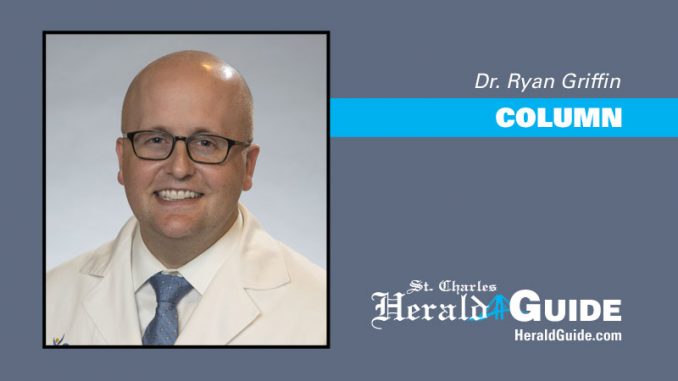
Cancer patients often wonder if their disease could have been prevented. Oncologists can’t always explain why someone has gotten cancer, but we know that lifestyle factors can contribute to the development of cancer. About one-third of all cancers are directly related to tobacco use, and obesity is a contributing factor in about 20 percent of all cancer cases. While half of all cancers can be lifestyle-related, your genes and family history play a significant role as well.
Unfortunately, some cancer diagnoses are unfortunately just bad luck. A patient who has no family history of cancer and who lives a healthy lifestyle can still get cancer. That’s why Ochsner Health System participates in and offers important clinical trials to our patients, so that we can learn more about how these diseases develop and how we can treat them.
Data shows that the earlier that we can detect and diagnose cancer, the better odds we have of beating the disease. Furthermore, if caught early enough, sometimes we can treat patients with surgery and/or radiation, sparing them from chemotherapy. We have screening tests for most of the common cancers, including breast cancer, colon cancer, lung cancer, and prostate cancer. Below is an overview of some of the recommended cancer screening guidelines for adults:
For women:
- Breast cancer: Starting at age 40, yearly mammograms are recommended by the American Cancer Society. In addition to a traditional mammogram, St. Charles Parish Hospital now offers Hologic® digital breast tomosynthesis or “3D mammograms,” which take multiple images as an x-ray arm sweeps in a slight arc over the breast, allowing the doctor to examine one breast layer at a time. The combination of 2D and 3D mammography has been found to identify up to 20 percent more invasive cancers than conventional 2D mammography alone.
- Cervical cancer: Women should begin screening for cervical cancer at age 21. From ages 21 to 29, women should receive a Pap smear every 3 years. From ages 30 to 65, women should have a Pap test plus an HPV test every 5 years. Even if you have had the HPV vaccine, you should still have routine screening tests. Women with a higher risk for cervical cancer may need to be screened more often.
For men:
- Prostate cancer: Prostate cancer is the most common male cancer worldwide. The U.S. Preventative Services Task Force recommendations suggest that clinicians should inform men ages 55 to 69 years of age about the potential benefits and harms of PSA-based screening for prostate cancer. A Prostate-Specific Antigen (PSA) test is a simple blood test that only takes a few minutes. Although a PSA can be abnormal in many non-cancerous situations, an abnormal PSA value is the most common way that prostate cancer is discovered.
For everyone:
- Colorectal cancer: Adults should begin getting screenings for colon cancer at age 50 or earlier depending on their family and medical history. There are many different tests that can detect colon and rectal cancer, including at-home options. The tests look for polyps, which can turn into cancer. Some of the tests include stool DNA test, colonoscopy or fecal occult blood test (FOBT) and fecal immunochemical test (FIT). You should speak with your doctor to discuss which test would be right for you.
- Lung cancer: Adults ages 55-75 that are currently smokers, or were heavy smokers, should speak with their doctor about if a CT scan is right for them. There are usually no symptoms from lung cancer until it is at an advanced stage, so possibly catching it early with a screening scan can be life-saving.
- Skin cancer: You should always be familiar with all moles and spots on your skin. If you notice any changes in size, shape, or color of any of these areas, you should talk to your doctor right away. Regular skin examinations by a dermatologist are important as well.
A cancer diagnosis is devastating, but by being aware of your family history and by following your personal cancer-screening guidelines, you can detect your cancer at an earlier stage, or even prevent it altogether.
Dr. Griffin earned his medical degree from Louisiana State University School of Medicine in New Orleans in 2011. He completed his Residency in Internal Medicine at Ochsner in 2014, as well as a Chief Residency in Internal Medicine in 2015. He completed his Fellowship in Hematology / Oncology at Ochsner in 2018. To schedule an appointment with Dr. Griffin at Ochsner Health Center – Luling (1057 Paul Maillard Rd., Luling, LA 70070) call (504) 443-9500.




Be the first to comment